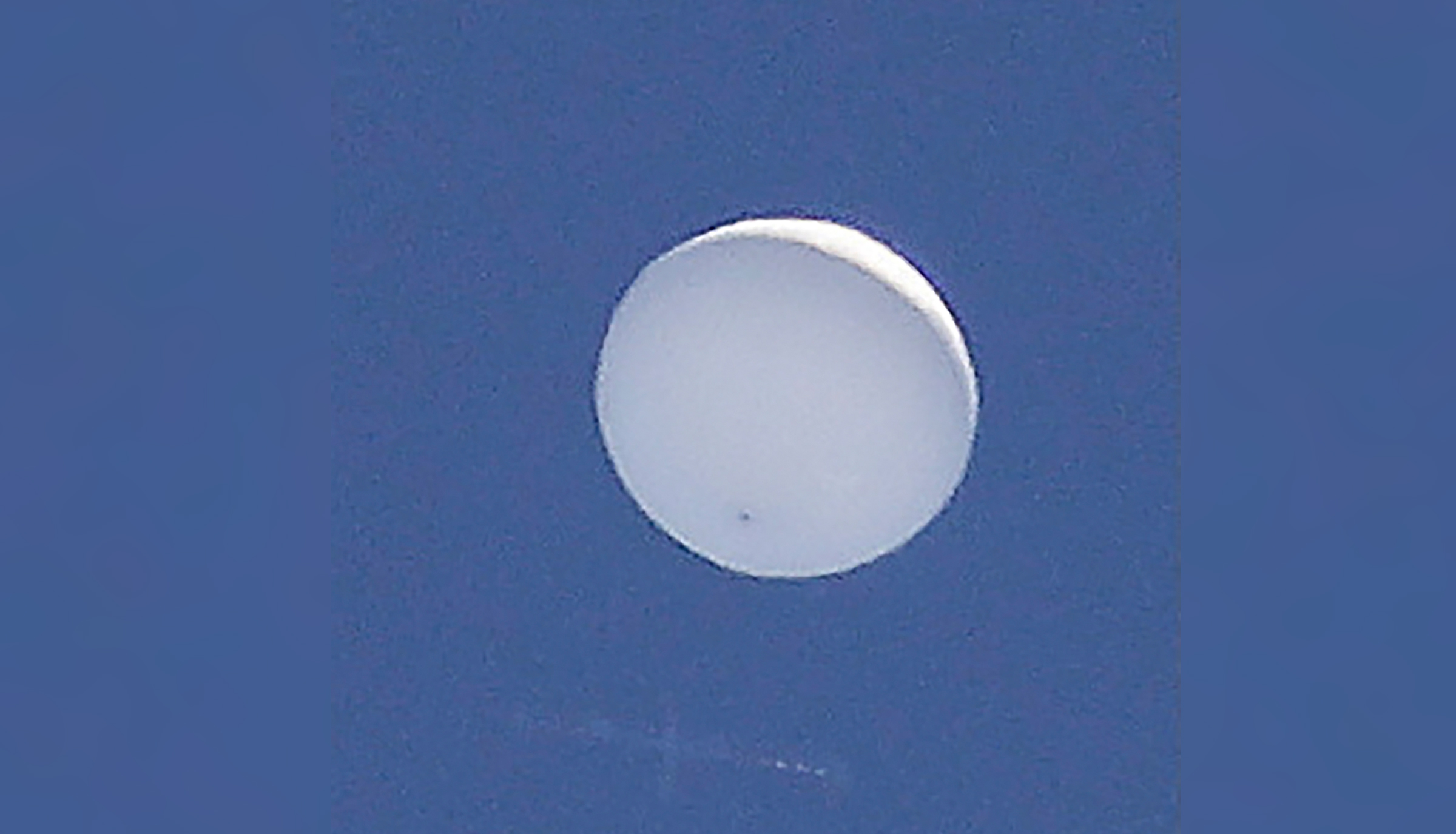'It's not ours': Government denies knowledge of strange 'UFO' over Japanese city
It looks like a weather balloon, but the Japan Meteorological Agency denies it's theirs.

It's not a bird. It's not a plane. And it's not an alien. (It's never an alien, from planet Krypton or otherwise.)
Still, the origin of a strange, balloon-like UFO that appeared in the sky over the city of Sendai, Japan, yesterday (June 17) around 7 a.m. local time, remains a mystery a full day after its sudden arrival. The object looked like a large white, unmanned balloon attached to two crossed propellers, according to news reports. The UFO lingered in the sky, largely motionless, for several hours before drifting over the Pacific Ocean, AFP reported.
WATCH: A balloon-like object in the sky over northern Japan sparks debate on social media pic.twitter.com/xV8xTz8iweJune 17, 2020
While a weather balloon seems like the obvious explanation (they are widely available for purchase), a spokesperson from the Sendai bureau of the Japan Meteorological Agency told AFP that "it's not ours." In his daily press briefing later that day, Japan's Chief Cabinet Secretary Yoshihide Suga also denied any knowledge of the balloon's origin, according to AFP.
Suga also tried to pop any rumors that the balloony UFO was the dastardly instrument of a foreign government. Earlier on Wednesday, social media speculation about the object ran rampant, giving air to theories that the UFO was distributing North Korean propaganda or even spreading the novel coronavirus.
The evidence for either of these theories — much like the balloon itself — looks like a big, fat goose egg. For a truly head-scratching UFO mystery, grab a tinfoil hat and take a look at these eerie airborne videos recently declassified by the U.S. government.
- 9 strange, scientific excuses for why humans haven't found aliens yet
- UFO watch: 8 times the government looked for flying saucers
- Greetings, Earthlings! 8 ways aliens could contact us
OFFER: Save 45% on 'How It Works' 'All About Space' and 'All About History'!
For a limited time, you can take out a digital subscription to any of our best-selling science magazines for just $2.38 per month, or 45% off the standard price for the first three months.
Get the world’s most fascinating discoveries delivered straight to your inbox.

Brandon is the space / physics editor at Live Science. With more than 20 years of editorial experience, his writing has appeared in The Washington Post, Reader's Digest, CBS.com, the Richard Dawkins Foundation website and other outlets. He holds a bachelor's degree in creative writing from the University of Arizona, with minors in journalism and media arts. His interests include black holes, asteroids and comets, and the search for extraterrestrial life.



